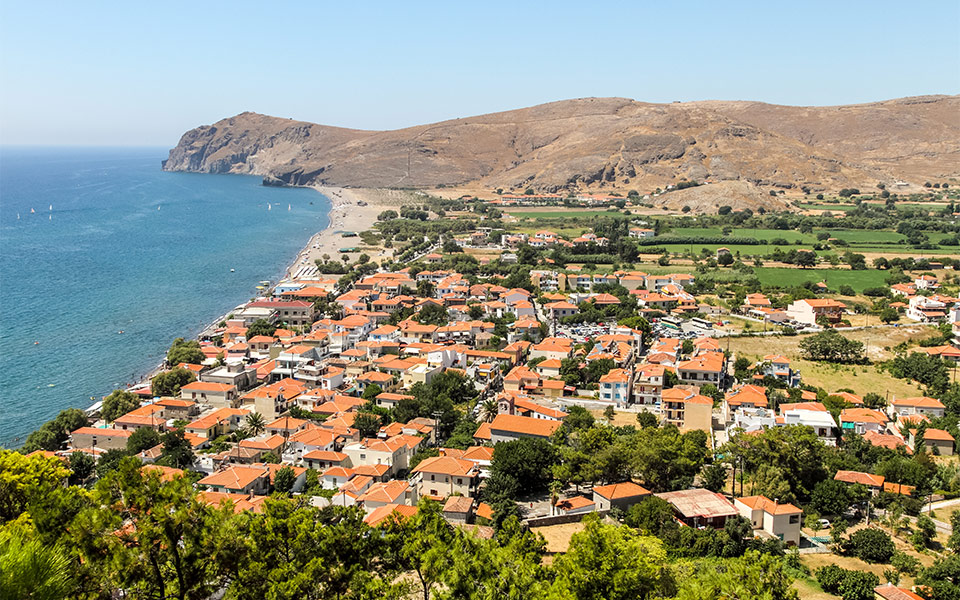The phrase “hen fangbian,” which means “very convenient,” is one of the most common in China. It is used daily, as convenience has become the number one virtue of everyday life. All transactions in the country are now made by mobile phone, using the WeChat and Alipay applications, something that is “very convenient.” So, what is it that makes someone from the other side of the world decide to up and move to this little corner of the map, where, among other things, nothing is easy or simple, but instead hassle is part of everyday life – the opposite of the Chinese saying? Perhaps we should ask ourselves this question, as the Chinese, Russians, Americans, Turks and others who decide to buy a home and settle here, seem to see something in our country that we have become so accustomed to we don’t even notice it. Daphne Korombeli is a lawyer who lives between Hong Kong, Shanghai and Athens, represents Chinese firms and offers services to Chinese investors who want to acquire a Greek residence permit by buying property. “The Chinese love Greece,” she tells Kathimerini. “For some it is a real life dream to travel to Santorini and see the ‘sea of love,’ as they call the Aegean.” The investment opportunities in our country have brought this dream closer, and quite a few of them have decided to move here permanently after buying their property. “They like the weather, the clean air, the blue sky, the fruit and vegetables bursting with flavor. Imagine that when you wake up in Beijing, Shanghai, Guangzhou or Chengdu, the first thing you do is open the application that reveals the daily pollution index and whether you should or should not leave the house, if you should or shouldn’t open the windows, if it’s a particularly dangerous day for vulnerable groups to be outside,” she explains.

© Giannis Giannelos
According to Korombeli, the prices in Greece are a world away from those in China. A 100-square meter apartment in a compound in Shanghai’s Jing’an District or a refurbished lane house apartment in the traditional Former French Concession can cost close to a million euros. The Golden Visa program has gradually attracted huge interest. “In 2013, when the law was introduced, the real buyers were few and far between. I remember when my first Chinese customer came with me to Athens to sign a power of attorney in September and, when her property was bought, I went to the relevant state service to submit her application for a residence permit and the employee didn’t know what I was talking about. The manager then told me that this was the first residence permit that had been issued under this law. Today things have completely changed. The increase in interest is gradual and apparent every year,” she says. Those who express interest are mainly businesspeople who have the money to invest and already have companies outside of China. The Golden Visa is the number one reason for their investment as Greece’s residence program is the cheapest in Europe – and gradually also becoming the most popular. Investors are buying property mainly near the sea, “even though they do not like swimming or sitting under the sun,” Korombeli says.

© Shutterstock
Alexandros Varnavas is also a lawyer specializing in property investments by foreign nationals. According to him, the Golden Visa program is only one reason pick Greece. “People of all nationalities who express an interest have, one way or another, an emotional connection with our country. Turks feel a certain familiarity because of our food but also because they had grandparents who lived here, the Russians love the country because of the weather, the Chinese admire it for its history. Nobody sees it merely as an investment – for everyone it is something more,” he says. The political instability of previous years had dented interest, but now most people believe the danger of Grexit has passed, the economy has stabilized and the property market in central Athens is starting to recover. “It’s not just third-country nationals who want to invest, but also Swiss and Israelis. In Israel for example, it is rumored that wealth will be heavily taxed so many people are deciding to diversify their risk. Besides, everyone expects prices in Greece to rise sharply, that soon one euro will cost two. At the same time, it is the best and cheapest program in Europe that allows many people to combine business with pleasure,” he adds. In addition to that, a large section of buyers don’t just want to have a summer house or to rent the property for extra income, but wish to relocate permanently to Greece. “They want to be fully integrated into Greek society, they search for schools, universities. These are mostly wealthy people who want to change their lives,” Varnavas says.

© Shutterstock
Anna Haughton, an American with Greek roots, lives and works in Athens as an investment adviser. In the past few years, she has handled dozens of cases of Americans who want to acquire property in Greece. “Greece sells itself. Athens is a lively city with an amazing expat community, a museum on every corner and great for walking,” she said, adding that she walked to our meeting in central Syntagma Square from Kypseli, a good half-hour north. “There are many Americans who would like to buy a house here, some because they claim ancestry in the country, others because they love Greece and always wanted to have property here. Some of our customers are thinking about retirement, others want to rent the property through Airbnb for a while to cover expenses and others for a combination of those reasons,” she adds. There are also plenty of Americans who were already living in Greece and decided to buy a house because the one they were living in was rented out to Airbnb. The most popular districts are those which have retained their value, such as Thiseio, Plaka, Monastiraki, but also Pangrati, Kolonaki, Ilissia and Petralona. As of late, interest has also been expressed in neighborhoods such as Kypseli. “I love Athens,” says Haughton. “If they also cleaned it up a bit, it would be great.”












